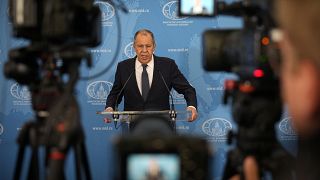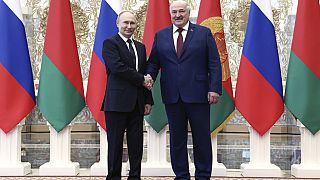Belarus
Belarus’ strongman, Alexander Lukashenko, marked 30 years in power on Saturday, making him one of the world's longest-serving leaders.
He was sworn in as president on 20 July 1994 following the country’s first elections as an independent state in the post-Soviet era.
Three decades later, he remains in absolute control, cosying up to Vladimir Putin’s Russia, reverting to Soviet-style economic controls and methods, and harshly silencing all dissent.
In 2020, Lukashenko was elected to his sixth term in office in 2020, in balloting widely seen at home and abroad as rigged.
Months of mass protests that followed were harshly suppressed in a violent crackdown that sent tens of thousands to jail amid allegations of beatings and torture.
Many political opponents remain imprisoned or have fled the nation of 9.5 million.
But the strongman shrugged off Western sanctions and isolation that followed, and now he says he will run for a seventh five-year term next year.
Lukashenko owes his political longevity to a mixture of guile, brutality, and staunch political and economic support from his main ally, Russia.
"Belarus is a country that, like many other resource-rich dictatorships, relies entirely on one particular natural resource. In case of Russia, it’s oil. In case of Saudi Arabia, it's also oil. But in case of Belarus, it's Russia,” said political analyst Artyom Shraibman.
“It is the natural resource that Lukashenko has to extract in a way to keep himself stable. So from this perspective, foreign policy is the key to his political survival."
In February 2022, Lukashenko allowed Russia to use Belarusian territory to launch its invasion of Ukraine.
Living up to his nickname as “Europe's last dictator”, under Lukashenko, Belarus' top security agency retained its fearsome Soviet-era name of the KGB.
It also has been the only country in Europe to keep capital punishment, with executions carried out with a shot to the back of the head.
In recent years, Lukashenko's become visibly less energetic amid rumours of health problems that he denied with his usual bravado.
He has kept his youngest son, 19-year-old Nikolai, at his side at official events, fuelling speculation that he could be nurturing him as a successor.











01:08
Dancehall superstar Shatta Wale urges young people to back President Mahama
01:49
Broken windows and lootings: Nairobi businesses deal with protest aftermath
01:09
Guinea presents draft for new constitution, referendum set for September
00:53
Former French president Sarkozy stripped of Legion of Honour medal
02:24
Celebration and protests: Nigeria marks 26 years of uninterrupted democracy
01:44
Chinese president hails Belarus as a 'true friend'